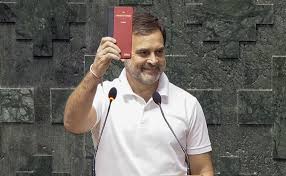Rahul Gandhi to ‘adopt’ 22 children who lost their parents in Pakistani shelling during Op Sindoor

Congress leader Rahul Gandhi has stepped up to help 22 children in Poonch who lost one or both parents in Pakistani shelling. These children became orphaned during the 2025 cross-border conflict that followed Operation Sindoor. Gandhi pledged to fund their education until they complete their studies, offering a ray of hope during a time of deep grief.
Personal Intervention After Poonch Visit
Gandhi made the commitment after visiting affected families in Poonch. He met survivors and listened to their stories. Among the children was a pair of 12-year-old twins, Urba Fatima and Zain Ali, who lost their parents in a mortar strike. Moved by the loss, Gandhi decided to take direct action.
What “Adoption” Means in Practice
Gandhi’s use of the word “adopt” refers to financial and educational support. He will fund school and college fees, textbooks, uniforms, and tutoring where needed. A team from the Congress party will monitor each child’s progress. They will also ensure that funds reach the right hands.
The first payment for educational expenses was made in late May. Local administrators are working with schools and NGOs to track each child’s academic journey.
The Background: Operation Sindoor and Its Impact
Operation Sindoor began on May 7, 2025. It followed a deadly terror attack in Pahalgam on April 22, which killed 26 civilians. Indian forces responded with strikes on terrorist camps across the Line of Control. The move sparked heavy shelling from Pakistan in border districts like Poonch and Rajouri.
During the four-day exchange, over a dozen civilians died. Many of the victims were children. Several homes, schools, and even a religious site suffered damage. The local administration confirmed that over 60 children lost a parent or became displaced.
Gandhi’s Message: Empathy and Responsibility
During his visit, Gandhi addressed a school gathering. He told the children to study well, play hard, and support each other. He also urged the nation to act with compassion. “We cannot normalize the loss of young lives to shelling,” he said. “These children should be in school, not in mourning.”
He called the tragedy in Poonch a national responsibility. He emphasized that standing with these children goes beyond charity—it is a moral duty.
Community Response and Next Steps
The Congress leader’s gesture drew praise from educators and child welfare advocates. Amina Bano, a schoolteacher who lost three students, said the aid came at a critical time. “These kids need more than money. They need to feel seen and supported,” she said.
Local authorities and NGOs helped select the 22 children. They verified each case to ensure support reached the most affected. In some cases, extended families now care for the children but struggle to cover school costs.
The Congress party plans to launch a mentorship program. It will pair each child with a mentor to guide their education and personal growth.
A Call for Broader Action
Gandhi’s move has reignited a national debate on the treatment of children affected by conflict. Some experts are urging the government to create a dedicated welfare policy for orphans in border areas.
“If one politician can support 22 children, imagine what a national program could do,” said Sneha Mehra, a lawyer who works with conflict-affected families.
While central and state governments offer some aid, families often face delays and red tape. Advocates say a streamlined system would ensure faster, more reliable help.
Looking Ahead: Hope in the Face of Loss
In a conflict zone, small gestures carry great weight. Rahul Gandhi’s support gives these children a second chance—to study, to dream, and to heal.
As the new school term begins, the children of Poonch walk into classrooms shaped by grief but buoyed by hope. Gandhi’s pledge doesn’t erase their pain, but it lights a path forward.






